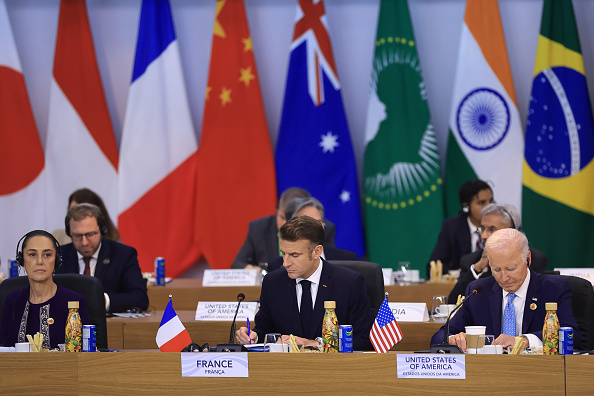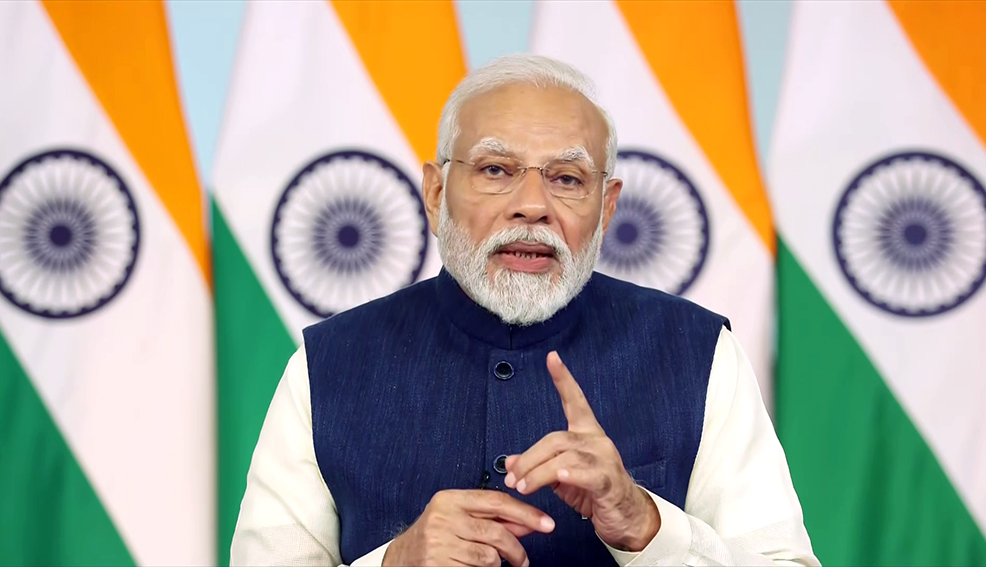Brazil’s President Luiz Inacio Lula da Silva opened the summit of the Group of 20 major economies on Monday with the launch of a global alliance to combat poverty and hunger that more than 80 countries have agreed to back.
As G20 leaders met at Rio de Janeiro’s Modern Art Museum for two days of talks, their agenda highlighted a shifting global order as U.S. president-elect Donald Trump returns to power.
Their discussions of trade, climate change and international security will run up against the sharp U.S. policy changes that Trump vows upon taking office in January, from tariffs to the promise of a negotiated solution to the war in Ukraine.
In his opening remarks, Lula said the devastating effects of a changing climate can be seen around the world, calling for action by leaders on hand to address global warming and poverty.
The alliance he launched, coordinating global efforts to eradicate hunger and poverty, is backed by the African Union and European Union, international organizations, development banks and philanthropies such as the Rockefeller Foundation and the Bill & Melinda Gates Foundation.
“Hunger and poverty are not the result of scarcity or natural phenomena … they are the product of political decisions,” said Lula, who was born in poverty and entered politics organizing a metalworkers union.
“In a world that produces almost 6 billion tons of food per year, this is unacceptable,” he said.
Diplomats drafting a joint statement for the summit’s leaders have struggled to hold together a fragile agreement on how to address the escalating Ukraine war, even a vague call for peace without criticism of any participants, sources said.
A massive Russian air strike on Ukraine on Sunday shook what little consensus they had established, with European diplomats pushing to revisit previously agreed language on global conflicts. The United States has also lifted prior limits on Ukraine’s use of U.S.-made weapons to strike deep into Russia.
Russian President Vladimir Putin did not attend the summit, and Moscow was represented by Foreign Minister Sergey Lavrov.
Security in Rio de Janeiro has been strengthened with troops reinforcing police for the duration of the summit.
A Brazilian army patrol came under gunfire near a Rio de Janeiro slum in the hours before the summit began, police said. No one was injured in the incident by the hillside Cidade de Deus community some 20 km (12 miles) west of the G20 venue.
NEW WHITE HOUSE PRIORITIES
While U.S. President Joe Biden arrives as a lame duck with just two months remaining in the White House, China’s President Xi Jinping will be a central player at a G20 summit riven with geopolitical tensions amid the wars in Gaza and Ukraine.
Xi announced measures to support the “Global South,” and said China would support development building a “high quality” Belt and Road Initiative, his signature foreign policy plan that directs large Chinese investments to infrastructure projects in the developing world, Chinese state television CCTV reported.
Brazilian officials recognized that their agenda for the G20, focused on sustainable development, taxing the super-rich and fighting poverty and hunger could soon lose steam when Trump starts dictating new global priorities from the White House.
Brazil’s push for reform of global governance, including multilateral financial institutions, may also hit roadblocks with Trump, Brazilian officials said.
Biden, who visited the Amazon rainforest on his way to Rio, is set to announce a pledge to replenish the World Bank’s International Development Association fund aimed at the world’s poorest countries, and launch a bilateral clean energy partnership with Brazil, a senior U.S. official told reporters.
Xi is expected to tout China’s Belt & Road initiative as it exerts its economic ascendancy. Brazil has so far declined to join the global infrastructure initiative, but hopes are high for other industrial partnerships when Xi wraps up his stay in the country with a state visit in Brasilia on Wednesday.
Brazil’s decision not to join was “a big blow to relations,” said Li Xing, professor at the Guangdong Institute for International Strategies, affiliated with China’s Ministry of Foreign Affairs. “China was very disappointed,” he said.
Trade talks around the G20 will be stoked by concerns of an escalation in the U.S.-China trade war, as Trump plans to slap tariffs on imports from China and other nations.
Trump’s tax-cutting verve will add to headwinds for Brazil’s efforts to discuss taxation of the super-rich, an issue dear to Brazil’s President Luiz Inacio Lula da Silva who put it on the G20 agenda.
Trump’s newest ally in Latin America, libertarian Argentine President Javier Milei, has already drawn a red line on the issue. Argentina’s negotiators refused to approve mention of the issue in the summit’s joint communique, diplomats said.
(Reuters)




















